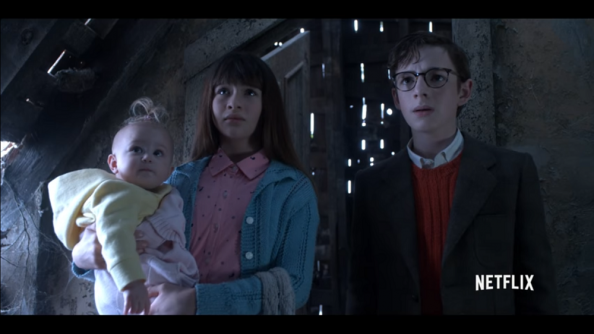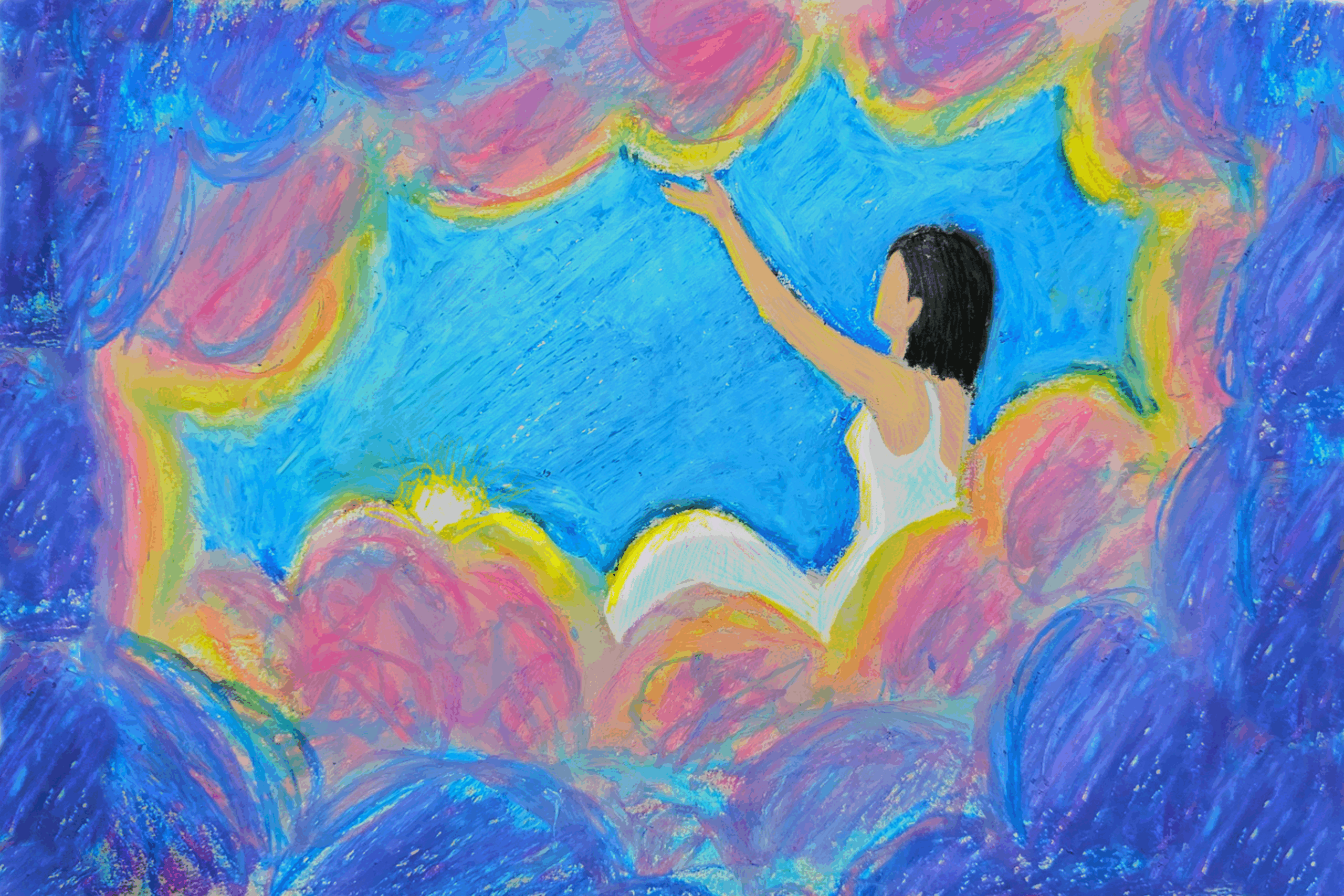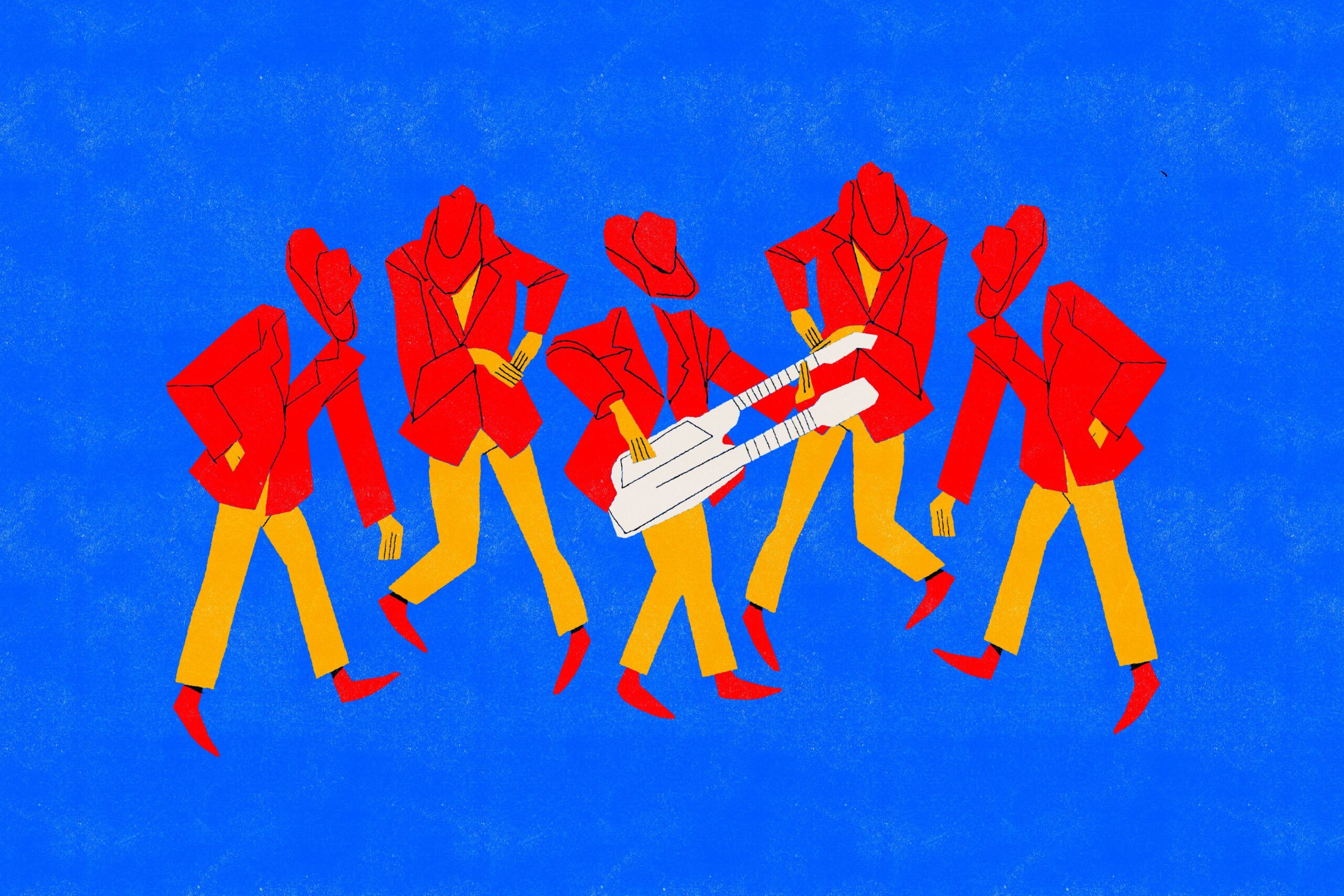Dear Reader,
I’m sorry to say that my review of this television program is not entirely positive. So if you are interested in seeing me express my undying love for a piece of scripted entertainment, I would suggest reading one of my other reviews. It is my sad duty to point out the flaws in any work of art I review for SCAD Radio, so I implore you to stop reading and force your browser to navigate you elsewhere.
With all due respect,
Liam Higgins
Sorry to scare you. No, the first season of Netflix’s adaptation of A Series of Unfortunate Events isn’t perfect, but it’s better and more faithful to the books than the 2004 film starring Jim Carrey.
That’s a good thing, because I am a massive fan of Lemony Snicket’s (or should I say Daniel Handler’s) books. They’re brutal, melancholy, hilarious, sweet and wildly inventive, often all on the same page. They are completely unafraid to be disturbing, even though they are technically children’s books (I started reading them at about six years old). After all, the whole series is about unfortunate events happening to the sweetest and most good-natured trio of siblings one could imagine. In the opening scene of the first book, The Bad Beginning, we learn that the Baudelaire parents perished in a fire which destroyed their home. This also leaves the three children in possession of a massive fortune. A large thematic touchstone of the books is that the Baudelaire orphans are continuously put in danger by adults that either want to help them or manipulate their situation for their own benefit. As children, we are often told that we should put our trust in our elders to mentor us and help us achieve our goals. A Series of Unfortunate Events brilliantly flips that idea on its head.
No adult is a bigger nuisance and terror to the Baudelaire orphans than the villainous Count Olaf, here played by Neil Patrick Harris, star of stage and screen. Throughout the series, Olaf puts on several ridiculous disguises in order to fool other adults into giving him custody of the children, thereby controlling their fortune. In my opinion, Olaf should be campy and theatrical (he is, after all, an actor), but he should appear truly threatening at times. For the most part, Neil Patrick Harris nails it, and comes off far more intimidating than Jim Carrey did with the same part. Harris’ stage experience serves him incredibly well here, as he demonstrates his ability to act under mountains of makeup and prosthetics, as well as burst into song on a couple of occasions.
The other notable performance here is the addition of Patrick Warburton as Lemony Snicket, the fourth wall-breaking narrator of the books, here realized in a series of House of Cards-esque direct addresses to the audience. In the books, Lemony Snicket has history with some of the characters in the story, and uses his omniscience to warn the reader of future events, as well as editorialize certain complicated bits of grammar in the books. In many ways, the book series is a series about the art of reading. It’s a story within a story, and it actively invites the reader to participate in the events of the book by frequently telling the reader to “look away.”
Just as the books are about the art of reading, the show is fittingly about the art of watching. Snicket frequently makes references to streaming TV and longform storytelling, and as someone that’s read the books many times, I felt the addition wholly natural and an intelligent way of translating the books to the screen. However, for those unfamiliar with the books, it might take some getting used to.
While the literal presence of Lemony Snicket significantly differentiates the TV show from the film, the biggest difference between them are their respective structures. Whereas the film re-arranged the events of the first three books into a less-than-satisfying plot, the TV show allots two 45-ish minute episodes per book, which adds up to an eight-episode first season that covers the events of the first four books (there are thirteen in all). This gives the show far more breathing room and time to develop the rules and rhythms of its incredibly unique world, as well as strengthen the relationships between its characters.
The unfortunate thing about the show is that it doesn’t do as much as it could in the extra time it’s been given. Yes, a great deal of the supporting characters get more attention (and deservedly so), but the Baudelaire children are often lost in the shuffle. Although the first few books are often reliant on events that are often out of the Baudelaire’s control, the show fails to give them meaningful characterizations other than the obvious sympathy we feel for them. Malina Weissman and Louis Hynes (as Violet and Klaus respectively) do a fine job at making their characters feel similar to their book counterparts, but they clearly have trouble conveying the hyper-quirky tone of the show, and are often forced to say long, unbroken sentences that are fun to read in the books but sometimes come off as overly-cutesy on screen. However, Presley Smith as Sunny proves herself to be a remarkably expressive infant actor, but she doesn’t have to do any dramatic heavy lifting. She’ll have more to do as the series goes on.
Chief among my other concerns are the tonal inconsistencies. The show tries to emulate the experience of reading the books with an aggressively energetic tone, steeped in whimsy and surrealism. While this can sometimes result in some of the wonderful absurdist humor that the books are known for, it often comes off as forced, and never fully nails its almost-Wes Anderson tone. It often stubbornly refuses to shift pace to take a quiet moment with its characters (the Baudelaire children in particular could have used a few of these), and therefore misses out on a lot of the melancholy of the first book in particular. It also telegraphs one of the second book’s biggest gut-punches, thereby cheapening the surprise for anyone unfamiliar with the books.
Admittedly, the show’s creative team had their work cut out for themselves with this season. The first four books of the series are intentionally episodic and repetitive, and they can occasionally get tiresome because of their rigid formula and structure. This becomes less of a problem with the books as the series goes on, but for now, the format isn’t entirely suited for binge-watching. Wisely, the creative team added in some of the conspiracies and mysteries that get introduced later on in the series in an obvious attempt to make it feel more serialized. While those additions are welcome, they occasionally undercut the thematic core of this season, which should be about the relationship between the Baudelaire children.
On a more positive note, almost every visual risk the show takes pays off beautifully. The sets feel real and lived-in, and the CG that is used looks intentionally cartoony. The environments are clearly inspired by the gothic aesthetic so brilliantly captured by the book series’ illustrator Brett Helquist, yet they expand on his original vision in several exciting ways. The look and feel of the show succeeds because its intentionally not trying to emulate reality. It nails the retro tech and vibe of the books, and some of the locations in particular feel ripped right out of my imagination.
All in all, it’s a good-not-great start for Netflix’s A Series of Unfortunate Events. For the second season, I would love to see a better command of tone. While the books are funny, the humor never really gets in the way of the moments of true melancholy and despair. Yes, the visual aesthetic of the show is directly in keeping with the book, but the show is missing the main thing that made the books so special: the characters. Here’s hoping they fix some of the issues in the next season, because these books really deserve a fitting adaptation. Fortunately, the books get better and less repetitive as they go on. The jury’s still out on the show.
3 out of 5 Stars






Leave a Reply